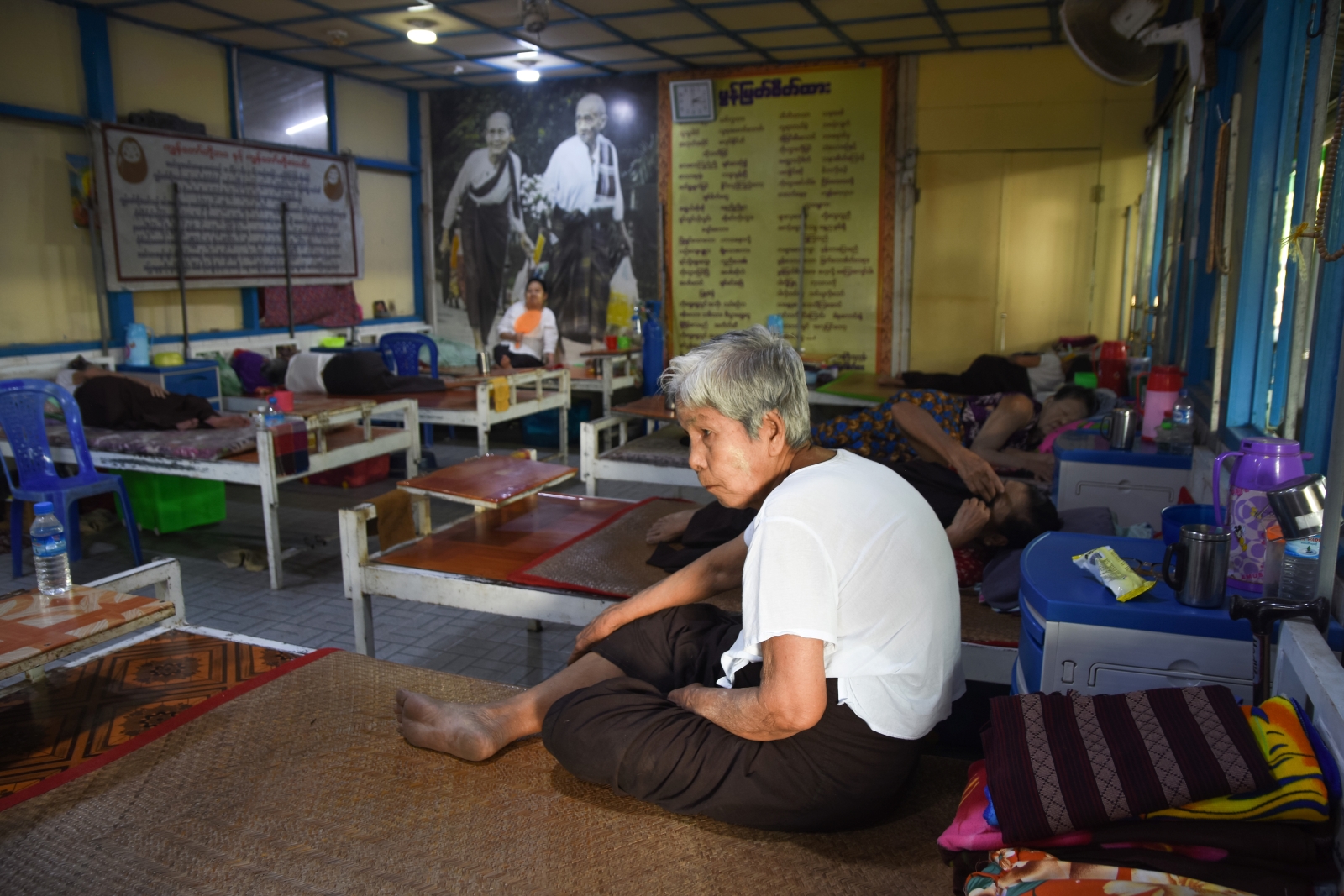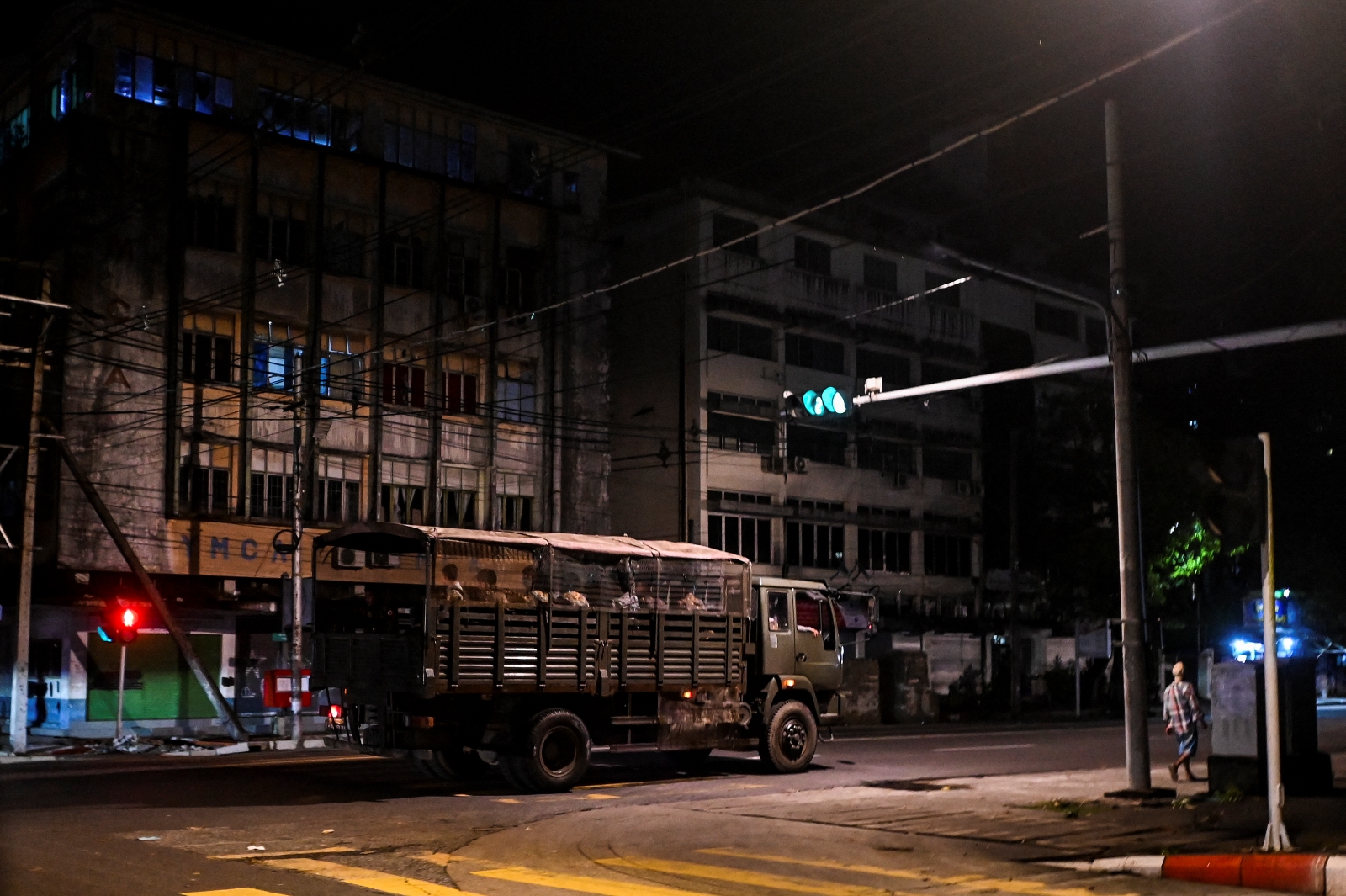Amid a deep economic crisis and an influx of migrants fleeing conflict, rental prices are soaring in Myanmar’s commercial capital, where tenants are being taken advantage of by unscrupulous landlords and brokers.
By ANT PWEH AUNG | FRONTIER
Last month, Ko Ko Maung* and his wife Ma Theingi* made the difficult decision to move with their 10-year-old son to a hostel because they could no longer afford to rent their apartment.
They had moved into a high-rise building in Yangon’s Thingangyun Township one year ago, paying K150,000 per month (about US$41 at the market rate). But after successive rent hikes every three months, the price ballooned to K250,000, which they could no longer afford.
The new rent would have taken up the full salary of Ma Theingi, who works as a saleswoman in a mobile phone shop in Tarmwe Township, while Ko Maung makes another K350,000 per month as a car mechanic.
“There are many people looking for apartments to rent in Thingangyun but there are not many apartments available. That’s why landlords and brokers are raising rent prices,” Ko Maung told Frontier.
The February 2021 military coup sparked an economic crisis, with the value of the kyat collapsing, even as commodity prices continue to rise. An influx of internal migrants fleeing armed conflict for the relative stability of cities also gives landlords in Yangon the upper hand.
At the end of last month, Ko Maung and Ma Theingi moved to a hostel in South Dagon Township, on the outskirts of the city, where they pay K120,000 for a 30 square metre room without air conditioning or a kitchen. All 12 rooms in the building share one common bathroom, and the move also means longer commutes for them both.
“Landlords and brokers have no sympathy even though most tenants are in trouble due to the economic crisis after the coup,” Ko Maung said.
They are far from alone. Their hostel is full and, as rental prices keep rising, many Yangon residents are finding the only way to keep a roof over their heads is by moving to hostels in suburban areas that are generally less safe and affluent.
“The number of people living in hostels has greatly increased in the last few months. They can only afford to live in the suburbs, where most working class people live,” Ko Than Myat Soe*, a real estate agent working in Yangon, told Frontier.
He added that prices in this kind of hostel have also increased, from an average of K40,000 per month before the coup to a minimum of K75,000.
Taking shelter in the city
While not everybody in Myanmar’s commercial capital and biggest city is being pushed to live in overcrowded hostels on the outskirts, many are struggling to pay the rent.
Real estate agents interviewed by Frontier said that rental prices for houses and apartments in Yangon Region have doubled, and sometimes even tripled, in the last three years. The minimum rent in Yangon was somewhere around K80,000 before the military takeover, but currently stands at about K150,000.
In high-demand townships like Thingangyun, South Okkalapa, North Okkalapa, Dawbon or Mayangone, the average monthly rent has skyrocketed from K130,000 to K600,000.

“The manipulation of market prices by some greedy landlords has unnecessarily inflated rent prices. And in some townships, the number of tenants is higher than the number of apartments available,” real estate agent U Moe Shwe* told Frontier.
That’s because many of those prospective tenants have fled conflict zones for the relative stability of Yangon. Exact figures are difficult to come by, but urban centres like Yangon and Mandalay have seen an influx of people seeking refuge since the coup and subsequent armed conflict.
Former shop owner Daw Nyein Nyein Zan* moved to Yangon in December from Minbya Township in Rakhine State, which has been engulfed in conflict between the military and Arakan Army since November, when an informal ceasefire unravelled.
Now unemployed and supporting her mother and two children, Nyein Nyein Zan and her husband are paying K350,000 per month for an apartment in Tarmwe Township. They hope to open a stall selling traditional Rakhine food to make ends meet until it’s safe enough to return to Minbya.
“I know that rental prices of the apartments in Yangon are high, but we came here for the safety of my family and to get medical treatment for my mother. Also, many Rakhine people live here [in Tarmwe],” she said.
They had to sign a three-month contract, pay those three months up front, and pay one month’s rent to an agent as a service fee. Most agents encourage these short-term contracts because they get paid every time the contract is renewed.
Taking advantage
This system also allows the landlords to easily increase the rent every three months, as happened to Ma Win Win Myint*, a 45-year-old assistant manager at a construction company.
Win Win Myint lives alone in a fifth floor apartment in Hlaing Township, and the rent is becoming an unsustainable burden for her. When she moved in nine months ago, she paid K180,000 per month, but today she pays K220,000, and her landlord informed her that it will go up to K260,000 starting at the end of this month.
With a salary of K550,000, another rent hike is something she can hardly afford. She has to set aside at least K100,000 per month for her diabetes treatment, which would leave her with only K190,000 to pay for food, transportation and other necessities.
“If the rental price increases that much, it won’t be possible for me to continue staying here,” she said in February. “I’ll have to move to a cheaper apartment in another township.”
Law enforcement – already patchy in Myanmar – has completely collapsed since the coup, allowing landlords and brokers to set unfair prices without constraints.
“There are no organisations that can control the high prices and the rents will continue to rise,” real estate agent Moe Shwe said.
The Urban Rent Control Act, passed in 1960, is designed to regulate rent prices in urban areas. Ward administrators are responsible for limiting rental prices according to market trends, but residents say this isn’t happening.
According to legal expert U Than Tun* most residents and ward administrators simply don’t know the law. This would have been true before the coup as well, but was less of a problem then, because the rental market was more stable.
“Most of our citizens don’t know this law exists, so we need to educate and raise awareness to spread legal knowledge among the public,” he said. “Landlords and brokers who raise exorbitant rental prices can be sued by aggrieved tenants. But the problem is that justice is very slow.”
* denotes the use of a pseudonym for security reasons







